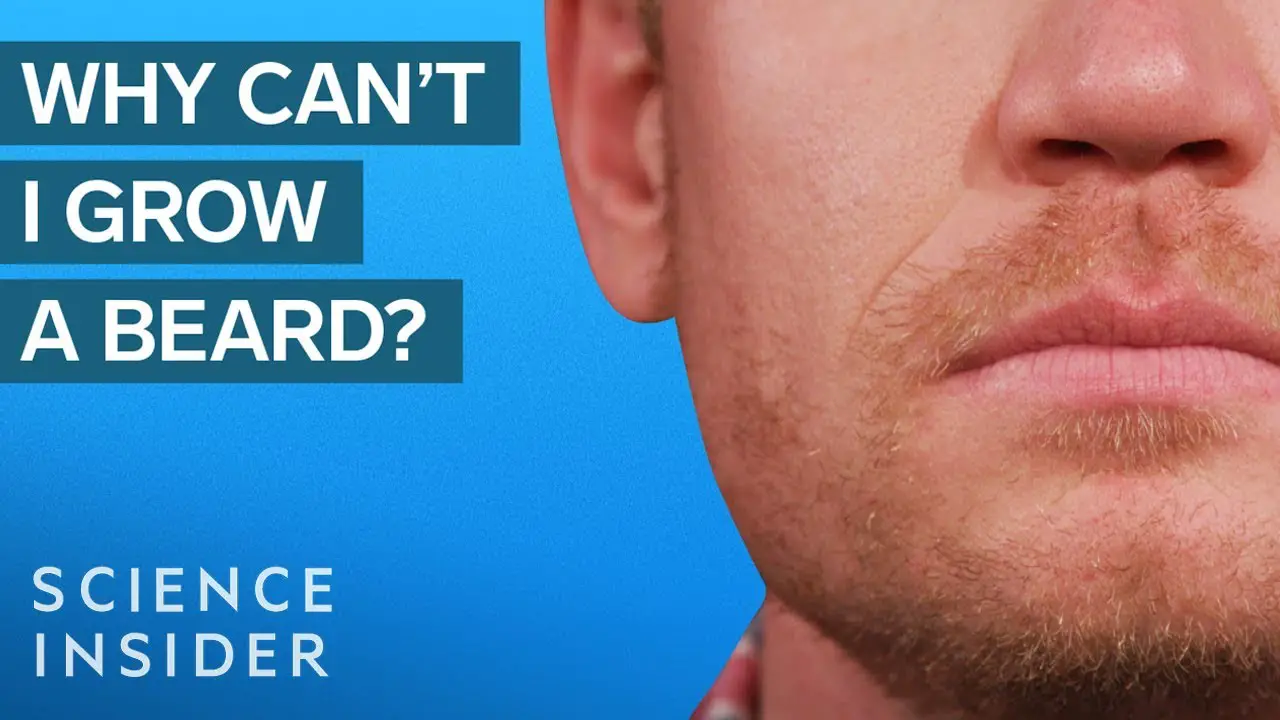Not everyone finds it easy to grow a beard. For some, it’s nearly impossible.
Struggling to grow a beard can be frustrating. Many factors can affect beard growth, such as genetics, hormones, and lifestyle choices. While some men flaunt thick beards effortlessly, others face patchiness or slow growth. Understanding the reasons behind this can help you address the issue better.
In this blog post, we will explore the common causes preventing you from growing a beard and offer practical solutions. Whether it’s your genes, health habits, or grooming techniques, we will cover it all to help you on your journey to a fuller beard.
Genetics And Beard Growth
Your DNA plays a big role in beard growth. Some people have genes that make it easy to grow a full beard. Others have genes that make it hard. These genes come from your parents. If your father or grandfather had thick beards, you might too. If they didn’t, you might struggle. Different genes control different parts of beard growth. Some control how fast your hair grows. Others control how thick the hair is.
Family history affects beard growth a lot. If many men in your family have full beards, you have a good chance. If they don’t, you might have a harder time. Look at your relatives. See how their beards look. This can give you a clue. Sometimes, even with good genes, other factors can affect growth. These include age, hormones, and health.

Credit: www.youtube.com
Hormonal Influences
Testosterone Levels play a big role in beard growth. Men with lower levels of testosterone may find it harder to grow facial hair. It’s not just about having testosterone, but having enough of it. Some men have plenty of testosterone but still struggle with beard growth due to other factors.
Dihydrotestosterone (DHT) Impact is another key. DHT is a byproduct of testosterone. It affects hair follicles differently. Some men have hair follicles that are very sensitive to DHT. This sensitivity can cause hair loss on the scalp but can help beard hair grow. If your beard isn’t growing, your hair follicles might not be responding well to DHT.
Age And Beard Development
During teenage years, the body undergoes many changes. Beard growth often starts around age 15. Some teens see early signs of a beard. Others may wait longer. Genetics play a huge role. If your dad had a late beard, you might too. Hormones also matter. Testosterone levels can affect growth. Some hair might be patchy at first. This is normal. Patience is key.
Beard growth changes as you get older. By the age of 20, growth becomes more consistent. Some men still see slow growth. Full beard development can take until age 30. Again, genetics play a role. Family history can give clues. Healthy lifestyle choices help. Good diet, enough sleep, and less stress can improve growth. Trimming and care help too.
Credit: www.businessinsider.com
Health And Nutrition
Some men struggle to grow a beard due to genetics, hormone levels, or underlying health issues. Proper nutrition and a healthy lifestyle can help improve facial hair growth.
Dietary Factors
Food affects beard growth. Eating the right foods helps. Poor diet slows growth. Eating healthy is key.
Vitamin Deficiencies
Lack of vitamins harms hair. Vitamin D is crucial. Vitamin B also helps. Low levels mean no beard. Check your vitamins.
Skin Conditions
Alopecia Areata is a skin condition. It causes hair loss in patches. This can happen on the beard area too. The immune system attacks hair follicles. This stops hair from growing. It is not painful, but can be distressing. Treatment options include creams and injections. See a doctor for the best advice.
Fungal infections can affect beard growth. These infections can cause itching and redness. Fungi live on the skin and can spread easily. Sharing razors or towels can cause this. Antifungal creams can help treat it. Keeping the skin clean is important. Regular washing can prevent fungal infections. Visit a doctor for proper treatment.
Lifestyle And Stress
Stress can affect your body in many ways. It can make it hard to grow a beard. When you are stressed, your body produces more cortisol. This hormone can block the growth of hair. So, keep stress levels low to help your beard grow.
Good sleep is very important for hair growth. Sleep helps your body repair and grow. Without enough sleep, your beard might not grow well. Try to get 7-8 hours of sleep each night. This can help you see better beard growth.
Grooming Habits
Shaving more often does not make your beard grow faster. This is a common myth. Hair grows from follicles beneath the skin. Cutting hair at the surface does not affect its growth rate. Also, shaving does not change hair thickness.
Beard oil can help keep your beard soft. Washing your face regularly is important. It keeps your skin clean. A clean face can support better hair growth. Trimming your beard regularly is also a good habit. It keeps your beard healthy and strong.
Medical Treatments
Some medications might help beard growth. Minoxidil is one example. It can stimulate hair growth. But, it may not work for everyone. Always check with a doctor before using it. Another option is hormone therapy. Testosterone can impact beard growth. But, it should be used carefully. Too much can cause problems. Seek advice from a healthcare professional.
Seeing a specialist is important. They can identify the cause. It could be a genetic issue. Or, it might be a hormone problem. Specialists provide the right treatment. They suggest safe options. This ensures effective results. Trust their expertise. It makes a big difference.

Credit: www.reddit.com
Frequently Asked Questions
Why Can’t I Grow A Beard?
Many factors influence beard growth, including genetics, age, and hormone levels. A healthy diet and proper skincare can help.
What Age Do Beards Fully Develop?
Beard growth typically continues until around age 30. Some men may experience full growth earlier or later.
Can Diet Affect Beard Growth?
Yes, a balanced diet rich in vitamins and minerals supports healthy hair growth, including beards. Consider foods high in biotin, zinc, and vitamins.
Does Shaving Help Beard Growth?
Shaving does not affect beard growth rate or thickness. It only removes the hair at the skin’s surface.
Conclusion
Growing a beard can be challenging for many reasons. Genetics play a big role. Hormones also affect beard growth. Proper skincare is crucial. Eating a balanced diet helps too. Some people need more patience. Beard growth varies from person to person.
Consistent care and time may bring results. Consult a dermatologist for persistent issues. Remember, you’re not alone in this journey. Keep trying and stay positive.

My mission is to help you bring the beauty of nature indoors with expert advice, detailed plant care guides, and creative design ideas.





Leave a Reply